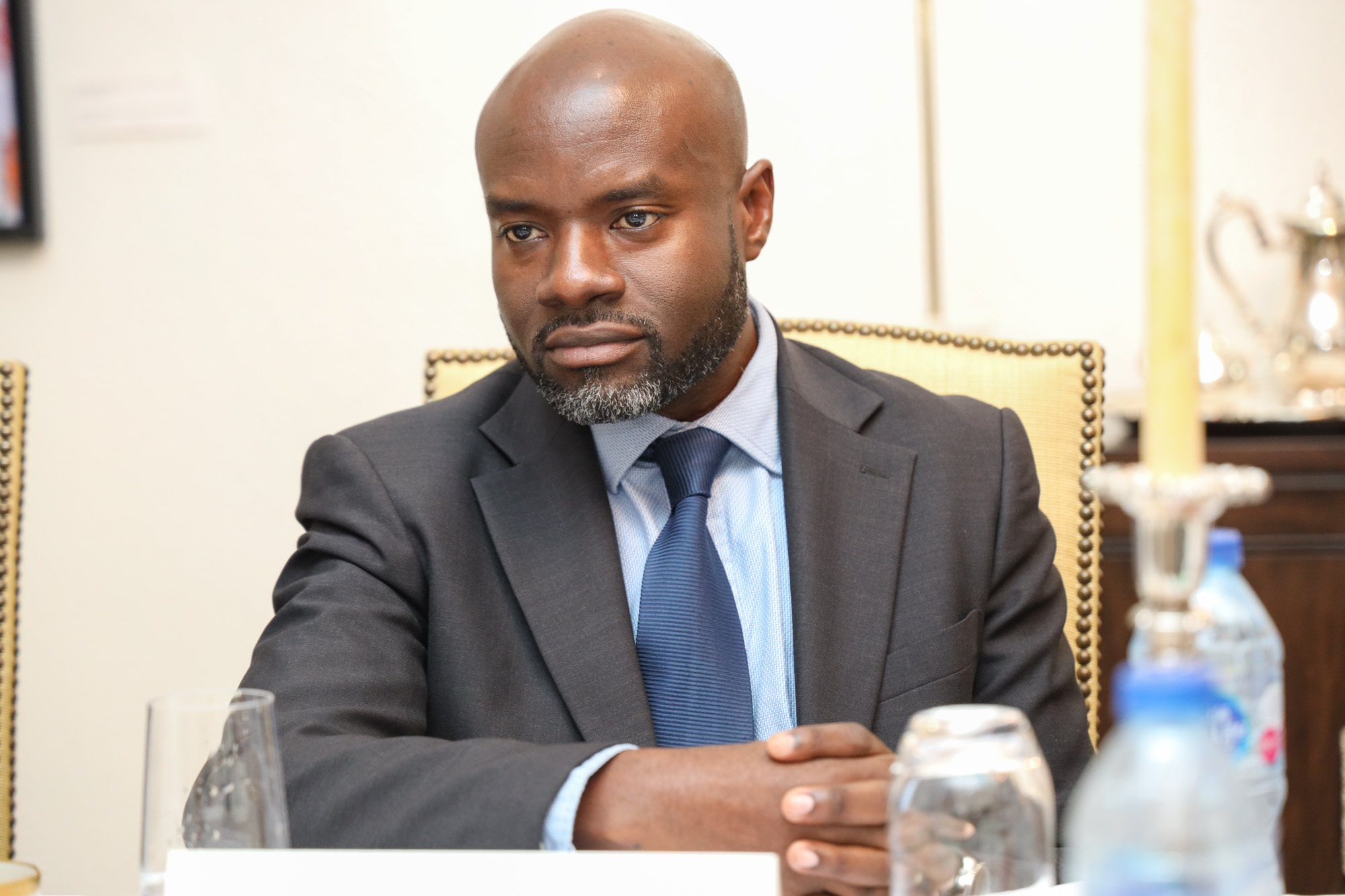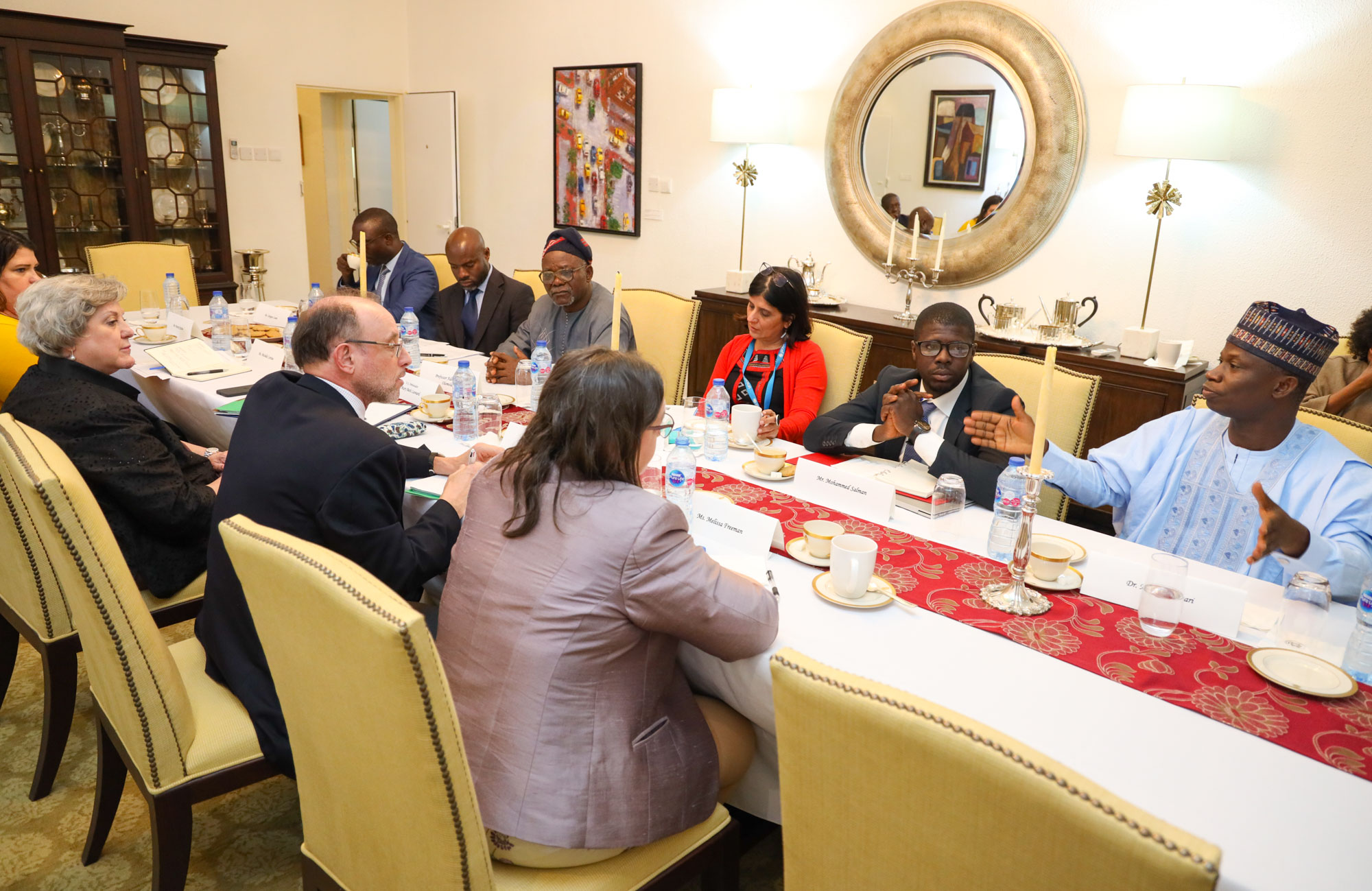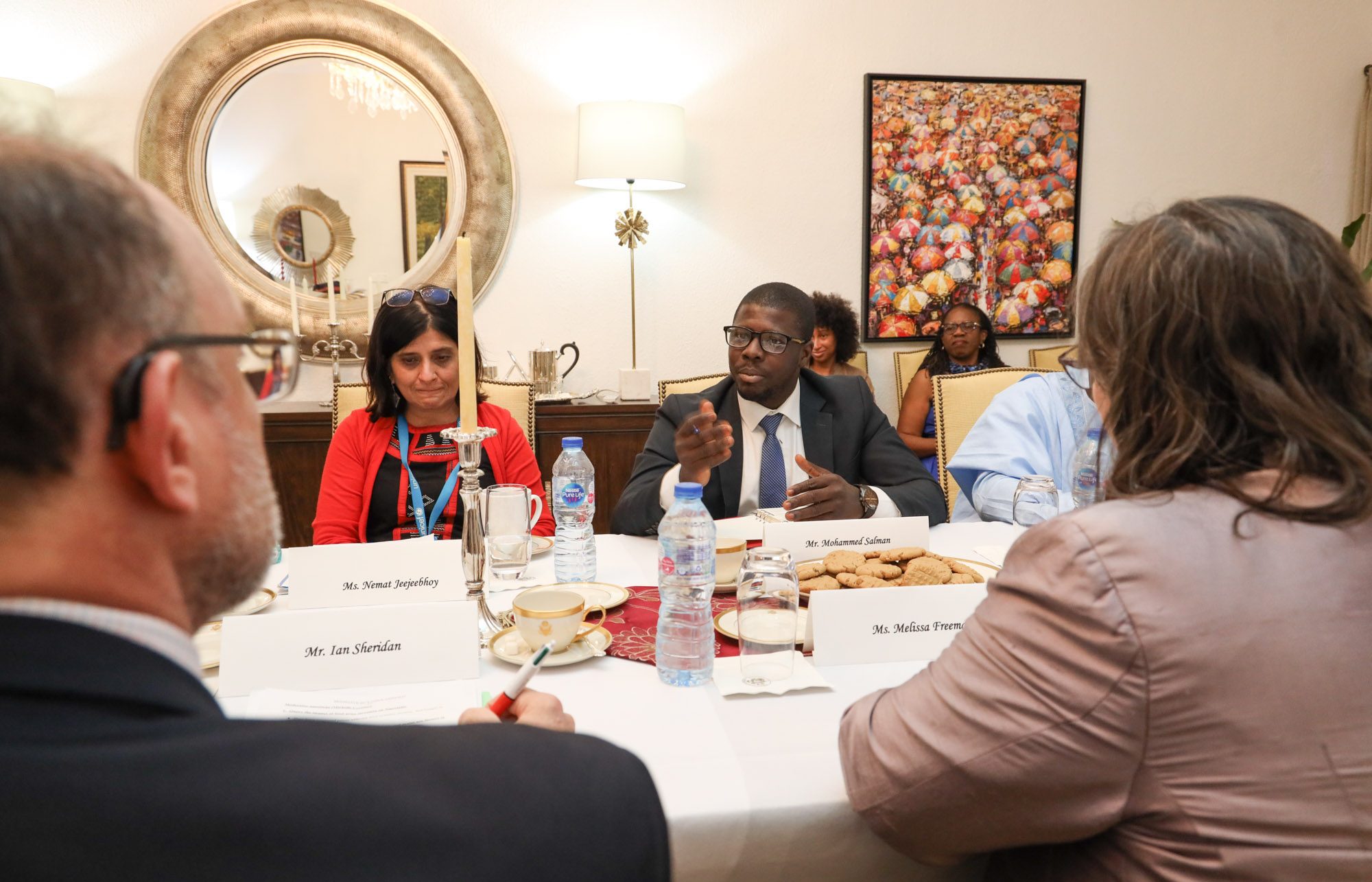Roundtable Discussion on Food Security in Nigeria with US Ambassador to Nigeria
-
From
CGIAR Initiative on National Policies and Strategies
-
Published on
25.08.22

On August 3, 2022, the U.S. Ambassador to Nigeria, Mary Beth Leonard, invited food security experts, including Kwaw Andam, CGIAR Research Initiative on National Policies and Strategies (NPS) Nigeria Country Lead and Country Program Leader of IFPRI Nigeria, to a roundtable discussion on the food situation in Nigeria. Other participants included representatives from the United States Agency for International Development (USAID)/Nigeria, United Nations Children’s Fund (UNICEF), World Food Programme (WFP), the Nigerian Institute of Social and Economic Research (NISER), the Nigerian Agribusiness Group (NABG), and a Mandela Washington Fellow (MWF).
Michelle Corzine, Director of USAID/Nigeria Economic Growth and Environment Office, moderated the conversation. Discussions shed light on the reasons for price hikes and the difficulties Nigerian agribusinesses face. Additionally, participants discussed the condition of the hungry and poor in both urban and rural locations of the country.

In his remarks, Kwaw Andam focused on the question ‘How have the Government of Nigeria (GON) bans on imported rice and maize affected food prices?’. He presented IFPRI research showing that import bans have not led to the development of a vibrant local rice sector, due to the failure to meet rising local demand. This has meant a continued increase in prices of both local and imported products. He recommended a focus on increasing agricultural productivity in order to develop the value chains for those commodities in Nigeria.
Other areas of discussion included the challenges the Nigerian food industry faces, centering on thoughts on how increased prices have affected food systems, poverty, and hunger in urban and rural areas of Nigeria, insights on where or how the US might target interventions to make the most significant impact, and finally, what is the role for the Nigerian government in addressing the growing food insecurity in Nigeria.
Participants gave their views considering the areas they operate in, giving a wholesome view of the food insecurity crisis in Nigeria. The evening came to a close with suggestions for how the American and Nigerian governments may alleviate the adverse effects and prevent a worsening of the food crisis.
This article was first posted on IFPRI Nigeria website last August 25, 2022
Author: Omobolanle Onilogbo, IFPRI Nigeria
This work is part of the CGIAR Research Initiative on National Policies and Strategies (NPS). CGIAR launched NPS with national and international partners to build policy coherence, respond to policy demands and crises, and integrate policy tools at national and subnational levels in countries in Africa, Asia, and Latin America. CGIAR centers participating in NPS are The Alliance of Bioversity International and the International Center for Tropical Agriculture (Alliance Bioversity-CIAT), International Food Policy Research Institute (IFPRI), International Livestock Research Institute (ILRI), International Water Management Institute (IWMI), International Potato Center (CIP), International Institute of Tropical Agriculture (IITA), and WorldFish. We would like to thank all funders who supported this research through their contributions to the CGIAR Trust Fund.


